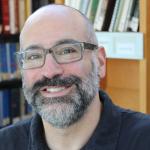It was a little over a year ago that I wrote an article for the religion magazine First Things in which I argued that the foundation for building a large umbrella inclusive community cannot rest on shared prayer alone. I wrote:
“Perhaps we require a different paradigm for Jewish inclusiveness. For a generation we have relied on shared ritual. But ritual runs directly into contentious issues such as gender separation, and leads to the stark contrast of the highest or lowest common denominator. The result is to uproot ritual—the articulation of faith as expressed differently by each denomination—from its foundations, and force a compromise with which no one is comfortable1.”
The notion that ritual is the expression of the inner religious life unique to each denomination is one articulated a generation ago, albeit in a different context, by Rabbi Joseph Soloveitchik in his response to calls for interfaith dialogue in the mid 1960s. He famously wrote that, “We believe in and are committed to our Maker in a specific manner and we will not question, defend, offer apologies, analyze or rationalize our faith in dialogues centered about these “private” topics which express our personal relationship to the God of Israel.2”

It was in my article that I advocated for shared Torah study to be the center by which the cultivation of interdenominational bonds occur. Torah lies at the heart of the entire enterprise of the Jewish life. It does not exist solely in the domain of any one expression of the Jewish religious experience but rather is the “inheritance of all of the congregation of Jacob.3” Everyone, respective to each person’s individual faculties and dedication, has the potential to sit at the table of shared Torah learning as equals.
I made my point back then primarily on pragmatic grounds and my observations as a campus rabbi of a vibrant and diverse Jewish community. However, the primacy of Torah study can be equally observed from a theological perspective as well. Rabbi Aharon Lichtenstein in a recently published book eloquently describes the religious aspirations inherent to the pursuit of Torah study:
“We believe that God is one. His oneness and His uniqueness is without any comparison. This fundamental principle is the essential foundation of our faith. One who understands the meaning of this uniqueness of the Holy One, blessed be He, and one who believes with all aspects of their spirit that the Torah they are learning is the Torah of God and the word of God – and there are many ways to understand that – their interaction with the Torah is an interaction with the word of God and their engagement with the Torah brings about a subsequent connection with the Holy One, blessed be He. Therefore, interaction with the Torah is a unique experience with no comparison.4“
Thus, not only does an emphasis on shared learning serve pragmatic grounds to further Jewish communal cohesion and strengthen shared bonds, it also reasserts a Jewish focus on Torah study. The pursuit of Torah study far from existing solely in the realm of the mind is the manifestation of the deepest yearnings of the Jewish soul to connect to God and is itself a profound and magnificent prayerful, spiritual experience.
It would do us well to closely examine the paradigm of the Beit Midrash, the House of Study, for our communal settings and preserve the inner, personal, unique and varied expressions of prayer of the Beit Tefillah, the House of Prayer.











